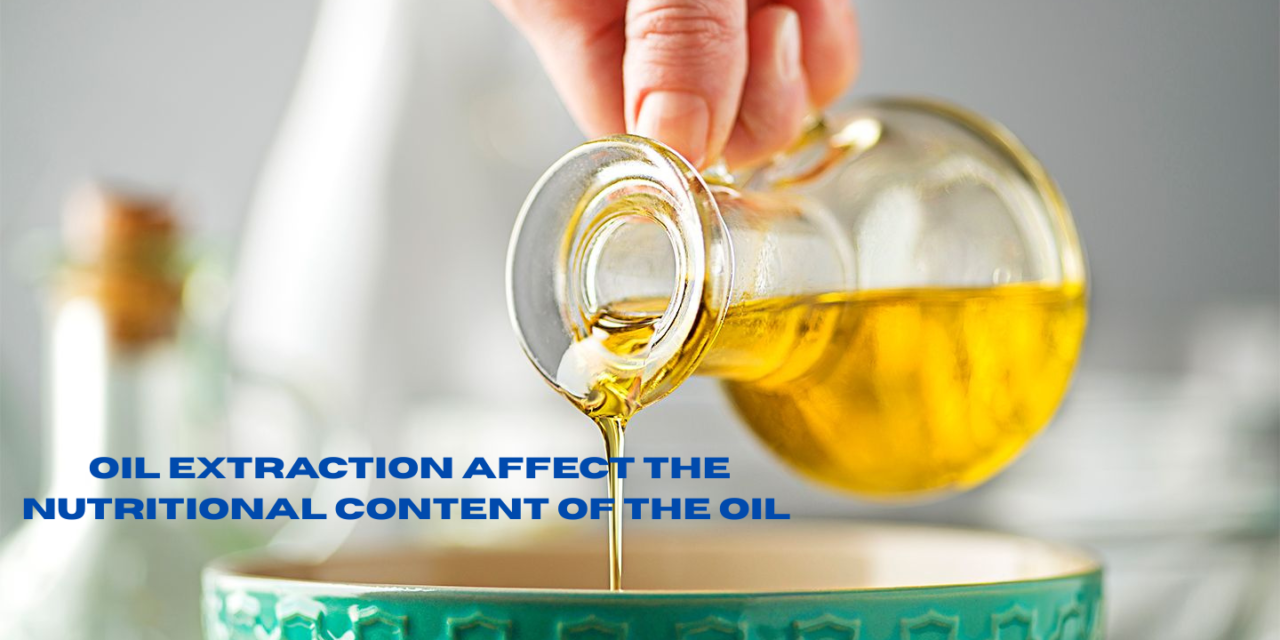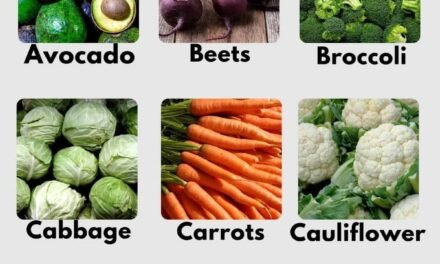Oil extraction significantly impacts the nutritional content of the oil, as different extraction methods can result in variations in the oil’s nutrient profile. Here’s how various oil extraction processes affect the nutritional content:
1. Cold Pressing (Cold Extraction)
- Method: Involves mechanically pressing the oil from seeds or fruits without the application of heat.
- Nutritional Impact:
- Preserved Nutrients: Cold pressing helps retain most of the oil’s natural nutrients, including essential fatty acids, antioxidants (like vitamin E), and phytochemicals.
- High Nutrient Density: Oils extracted using cold pressing typically retain a higher amount of vitamins (A, D, E, and K), polyphenols, and other bioactive compounds compared to oils extracted through heat-based methods.
- Flavor: The oil tends to have a stronger, more distinctive flavor since it retains the natural compounds found in the raw material.
- Example Oils: Olive oil, flaxseed oil, sunflower oil (in some cases).
2. Heat Extraction (Refining Process)
- Method: Involves heating the seeds or fruits to high temperatures and sometimes using solvents like hexane to extract the oil.
- Nutritional Impact:
- Loss of Nutrients: Heat can destroy sensitive nutrients like vitamins (especially vitamin E) and antioxidants. The higher the temperature used in extraction, the greater the nutrient loss.
- Refinement: After extraction, the oil is often refined, which removes impurities but also strips away many of the natural compounds, resulting in an oil that is more neutral in taste but less nutrient-dense.
- Increased Shelf Life: While the refining process removes certain nutrients, it extends the oil’s shelf life by reducing the oxidation of sensitive components.
- Example Oils: Canola oil, soybean oil, corn oil.
3. Solvent Extraction
- Method: A solvent (often hexane) is used to extract oil from seeds. The oil is then separated from the solvent and refined.
- Nutritional Impact:
- Reduced Nutritional Value: While this method is efficient for extracting oil, it often results in a loss of vitamins, antioxidants, and other bioactive compounds.
- Removal of Toxic Residues: During the refining process, any solvent residue is removed. However, the oil may still have a reduced nutrient profile compared to cold-pressed oils.
- Less Flavor: Solvent-extracted oils have a neutral flavor because the process eliminates the natural compounds responsible for taste and aroma.
- Example Oils: Most commercial vegetable oils, like soybean oil and palm oil.
4. Expeller Pressing
- Method: This is a mechanical method that involves pressing the seeds with a screw press, generating heat due to friction but not as high as in the refining process.
- Nutritional Impact:
- Moderate Nutrient Retention: Some heat-sensitive nutrients are lost, but the oil still retains a relatively good amount of vitamins and antioxidants compared to oils extracted through extensive heat treatment or solvents.
- Flavor Retention: Expeller-pressed oils can have a more pronounced flavor than refined oils, but may not be as strong as cold-pressed oils.
- Example Oils: Expeller-pressed sunflower oil, sesame oil.
5. Chemical Processing and Refining
- Method: The oil is subjected to processes like bleaching, deodorizing, and chemical treatments to improve color, odor, and stability.
- Nutritional Impact:
- Loss of Nutrients: Like in heat extraction, chemical refining leads to the loss of beneficial nutrients such as antioxidants, polyphenols, and vitamins.
- Increased Oxidative Stability: These processes make the oil more stable and resistant to rancidity, but they also reduce its nutritional and health-promoting qualities.
- Neutralization of Flavor: The refining process also neutralizes any strong or unpleasant flavors, leading to a more bland product.
- Example Oils: Refined sunflower oil, refined canola oil.
6. Impact of Refining on Polyunsaturated Fats
- Polyunsaturated Fats: Oils high in polyunsaturated fats (like omega-3 and omega-6 fatty acids) are sensitive to heat and oxidation. The refining process, which often involves high temperatures, can cause these healthy fats to degrade, reducing their nutritional benefits.
- Example Oils: Omega-3-rich flaxseed oil, omega-6-rich sunflower and corn oils.









